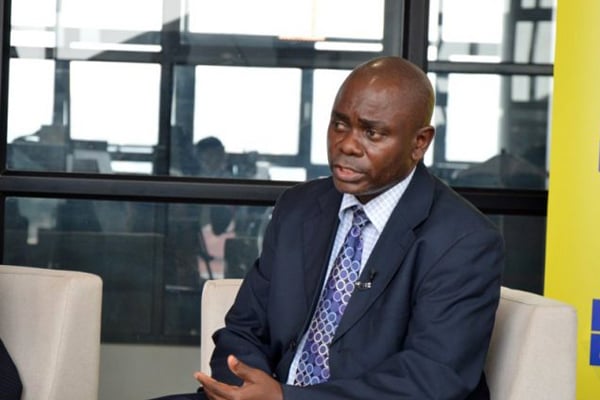Prime
Innovation is critical regardless of costs – Absa

Ms Maria Ramos, the chief executive officer of Absa
What you need to know:
- The re-branding of Barclays Bank across 12 markets in Africa including Uganda to Absa Group Limited has kicked off following shareholders’ vote to reduce its shareholding in Barclays Africa Group Limited (now Absa Group Limited) from 62.3 per cent to 14.9 per cent.
- Rainher Ojon interviewed Ms Maria Ramos, the chief executive officer of Absa, on what will change after this brand name change which is subject to regulatory country approvals by 2020.
Why this particular exercise to endorse the rebrand of Barclays Bank into absa?
We needed this rebrand to position ourselves appropriately in the markets (12 countries) we operate in particularly after our acquisition of Barclays Africa Group since it is no longer our majority shareholder. We are now trading as Absa Group and ABG at the Johannesburg Stock Exchange, which marks the start of a new era for the group as a standalone African Group with a brand new design fit for a forward looking business in a digital age.
What is the net cost that saw this separation in order to enable absa take on its new brand look?
First of all, this particular separation has brought us at least Rand 12 billion (Shs3.3 trillion). We are going to touch our market presence in Uganda, Kenya, Ghana, Botswana, Mauritius, Mozambique, Nigeria, Seychelles, Tanzania and Zambia, through rebranding, technological innovations and a stronger customer focus as a complete turnaround by mid-2020. As per our agreement with Barclays, it will cease using Barclays’ name in Africa by that year (2020).
Are you convinced that this rebrand will add value to your banking business?
The brand has substantial equity. Absa has been named the fourth most valuable brand in South Africa by Global brand valuation and strategy consultancy, Brand Finance at an estimated value of (Rand 18.9 million or about $1.5 billion). We have since established that the brand equity that we have obtained from this rebranding exercises is worth Rand 36 billion (Shs10 trillion).
If we double our own effort around restoring leadership position in the group’s core business areas and pioneering propositions for customers and clients, we shall secure strong growth in the mid-term.
What are you targets and how will you achieve this ambitious campaign?
Our ambition is for a 12 per cent market share of the banking revenues across Africa, doubling our current share which would make us the largest banking group on the continent. This will be achieved by growing market share, through acquisitions and strategic partnerships.
Our other priority is to create consumer finance franchise, build a leading global payment hub and launch a winning transaction banking platform.
How come you ceded ground in the banking market in South Africa, over the past five years?
We admittedly run into challenges earlier. We lost market share. We were the biggest player in the mortgage market. We had mortgages sitting in our loan books which were 100 per cent more loan to market value. We had to clean that mortgage book first. It cost us our market share. It took rather long to get the rhythm back. Our personal lending too was not able to return back profit because the economy slowed down a little bit.
It has now rebound. We are a new absa. We are ensuring that our diversified digital banking products generate the target traffic and business outcomes for us.
South Africans have more disposal incomes than the rest of your markets in the continent. How are you going to balance on that?
Over the next three to five years, we shall utilise our technology innovation hub based in Nairobi to spur intra trade. We already have profiles of the ongoing major economic activities across the African market that we want our resident operations to address. For instance, in Uganda, we are keen on businesses associated with the oil and gas sector. We should be meeting the associated financial requirements at the earliest opportunity.
For the Agricultural sector, we intend to scale up on financing input needs of small-scale farmers as well working very closely with existing state interventions for this important sector.
You have indicated that among the key digital innovations you’re initiating is “Whatsapp” banking. But this is an emerging taxable area in Uganda’s case. What are your thoughts?
Innovation is critical regardless of the costs that come along. Here in South Africa, eight out of every 10 people holding mobile handsets do actively use Whatsapp (platform). Again it’s our attempt to bring digital banking services both off their handsets and within our banking spaces to our esteemed customers as close as possible.
Some of the markets in which you are going to make a new presence such as Uganda suffers high Small and Medium Size mortality. How will you reverse this?
We understand the challenges of a short shelve life for startups. In part, the model of financing they access is equally of concern. We are going to provide products that make appropriate funds available, refine programmes that link enterprises to sustainable supply chains and develop an appropriate product base.




